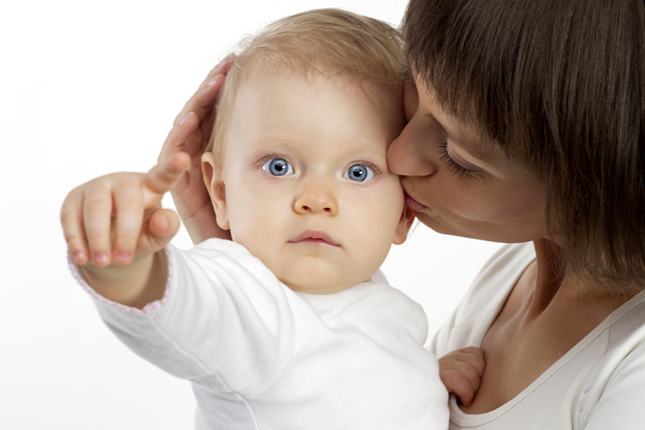Parent Savers
Attachment Parenting: The Basics
Please be advised, this transcription was performed by a company independent of New Mommy Media, LLC. As such, translation was required which may alter the accuracy of the transcription.
Mary King: Attachment of human beings has been studies long before the time of Froid. There is no doubt that apparent in baby bond is important and beautiful. How does one continue that bond of attachment throughout the child’s life? What does attachment parenting look like? I’m Mary King, co-leader of Attachment Parenting International in San Diego County and here to talk about attachment parenting. This is Parent Savers, Episode 28.
[Theme Music/Intro]
KC Wilt: Welcome to Parent Savers, broadcasting from the Birth Education Center of San Diego. I am your host, KC Wilt. Parent Savers is all about helping new parents from the baby years from the toddler years. So, download the free apps. Sigh up for the free newsletter. Like us on Facebook and send us an email or call our hotline. This is your show. We want you to be involved. We have our amazing experts at our fingertips. So, shoot us online and we’ll get your questions answered. We also have a new option of joining our Parent Savers club. It’s where you can download the archived episodes and get exclusive contents and so much more. I am a new parent myself. My son Carson is almost 23 months old, soon I’m going to be saying 2 instead of months and I’m joining my two new parents in the studio.
Scott Killian: I’m Scott Killian, 35, certified financial planner, proud father of my son, Alex. He is 2, almost 3.
Johner Riehl: And I’m Johner Riehl. I’m a 38 year old writer and I have three boys, 5, 3 and 1.
[Theme Music]
[Featured Segment: The Daddy Complex]
David Danna: Hi Parent Savers, this is the daddy complex. I’m David Danna, father of twin boys and for my experience has thought me anything about parenting and I know nothing about parenting. While we were potty training our boys, my wife had to go on a business trip. She was gone for three nights and for each of those nights, I had to handle poop. To my boys credit one of those nights was dog poop. When you’re expecting a baby, people will joke with or warn you about how messy babies and toddlers are. No matter what you’ve heard or how detailed their stories are, it does not provide an accurate picture of just how much human feces you’ll be forced to touch. Firstly, newborn’s poop is very fluid. This ends up a world of opportunities for fecal matter to find its way in places other than a diaper especially if you experience what I’ve dubbed the poo fountain. By the way, if you see your newborn making his or her poop face, don’t rush over and change the diaper right away. The wee one might not be done and your wall could end up looking like a Jackson Pollack painting. When your baby reaches toddlerhood, it gets challenging. You’ll experience daily poop accidents in potty training and accidents don't just manifest these story aunties. Poop in your hallways, on our furniture and slip on cat legs, the most right opportunity time, not that there’s really an opportunity time for a turn to roll out from a pant leg. Even after your child is technically potty trained, you’re not done. Once our boys knew how and when to use the potty, they still have to master the post poop clean up. I knew this was an issue but, really discovered how much of an issue one night my son Boon climbed up on my lap and showed up a long brown smear on his leg. The worst part ever, it wasn’t his smear. Let me preface that like me, my boys like to watch T.V in the nude. It’s seems to Wyatt left mid show and deposited a monstrous bowel movement in the potty in the potty. He had trouble getting the toilet paper off the roll so, he just gave it a perfunctory wipe with a shred of tissue and returned to the couch to cover his nude brother. They both ended up with so many smears of poop on the middle of like they were the world’s smelliest Indian tribe and yes, the couch suffered some collateral damage. If I hadn’t made it clear, let me reiterate. You will handle a soul crippling amount of poop. There’s nothing around it. So, invest in some gloves. You could think it might help, it won’t. You can control your gag reflex, you can’t. Often, when I was cleaning up a pile, I actually had to go to my happy place, I call it the island of Purell. Check out more of my terrible advice at the https://www.daddycomplex.com by getting a post or on Twitter at http//www.daddycomplex.com. You can also view the episode of potting with babies, my public web series for parents at https://www.daddycomplex.com/fwb and be sure to keep listening to Parent Savers for more fatherly texts.
[Theme Music]
KC Wilt: Today on Parent Savers, we have Mary King with Attachment Parenting International and she’s here to explain what attachment parenting is to us. So, what does attachment parenting mean?
Mary King: Attachment parenting or AP is a style of parenting that celebrates the many ways we can foster a deeper connection with our children. AP encourages parents to trust their hearts and their intuition and not externally impose set of rules when it comes to nurturing their children.
Johner Riehl: I just want to piggy back on what you’re saying coz for attachment parenting for us and we do practice it, it’s very refreshing because it’s not a very hard and fast process. Right there, attachment parenting is allows the parent to determine to use their gut, how they should respond to certain things as opposed to reading tons and tons of books and checking the box and am I doing this, what should I do now, what should I do now. You get to actually remove all of that and listen to yourself and listen to your partner and create the environment that you want to create and for us, it’s worked out wonderfully.
[00:05:23]
Scott Killian: I loved this so far. I’ve never heard of attachment parenting but I think that I am attachment parenting. [Laughs] There, this sounds exactly like, you know, kind of, what we’re, the flashes we have.
Mary King: I can tell you a little bit about the eight principles that we have in Attachment Parenting International. The first one is pregnancy, birth and parenting, taking those nine months to process the wonderful miracle taking place. Preparing for birth is considering what is important to you in the birth experience and educating yourselves on ways to achieve it, preparing for parenthood, taking that lactation, breastfeeding support class, going to a local lactating meeting, perhaps lining up a lactation consultant to support you in breastfeeding and gentlemen here, it really helps for the fathers to be involved and to educate and prepare themselves. This principle emphasizes baby bonding at birth and in the weeks thereafter. One of the most rewarding aspects has been sleeping in and honeymooning with my baby for a couple of weeks when each of them have been born. Principle two is feeding with love and respect. Like, API strongly encourages and supports breastfeeding. It has a multitude of benefits. API recognizes as some others may bottle feed and so we encourage breastfeeding behaviors. One bottle feeding, holding their baby close, skin to skin contact, looking into the baby’s eyes while feeding, also encourages parent to feed when their baby communicates that he’s hungry and not on a strict schedule. Principle three is responding with sensitivity. When I was a new mom, I was at one point completely overwhelmed by other books. There are friends who said it’s quite easy. One, respond when they cry. Two, you can’t spoilt before each do. [Laughs]
KC Wilt: That’s a good one.
Mary King: I wanted to say on responding to your baby’s cries that there’s a real positive to that. It’s how we then are able to develop a communication style with your baby. So, as your baby cries and you try new things, are you hungry, do you need a burp and the baby responds and it’s calmed, that uplifts the mother and then the baby is uplifted and it’s that ongoing dance of communication that we believe that strengthens that bond between….
KC Wilt: What about the child who always cries? My child had some occasions had cried nonstop in his first month of life and it tore me up. I mean, what do you do in that situation when you’re responding to their cries but they’re not stopping? Is that still responding in love.
Mary King: It is, it really is because that baby knows that you’re trying everything you can and that you’re there with him.
KC Wilt: Okay.
Mary King: …..and working him through it and I’ve known mothers who’ve spent hours bouncing on the ball or just holding him the hands and walking around and going through everything you can but recognizing that the most important thing is that you’re there, being there.
KC Wilt: So, what’s the next principle?
Mary King: Sure, principle four is using nurturing touch and it composes all the wonderful ways we can be physically connected to our baby. For example, baby wearing with all the wonderful baby cares around now. Nurturing touch includes infant massage, hugs, kisses. Don’t bother investing on a baby bathtub, you can simply hold your little one in your lap in the tub. Principle five is ensuring save sleep, physically and emotionally. Attachment parenting believes very strongly in night time parenting, responding to their children’s needs at night as well. Prof. Bencana Notherdame has done multiple studies and the studies really have shown how mothers and babies seem to be meant to sleep together. First of, of course, when the mother and the baby are nursing, they release relaxation hormones, both mother and baby fall asleep together. Something I find extraordinarily beautiful is that when mother and baby are sleeping next to one another, baby is too cold, mother’s body will over warm up even more until baby’s temperature comes to its statics. Baby’s too hot, mother cools down until baby comes to the right temperature. In API, we talk about the benefits of post sleeping. This may not include bed sharing depending on the family but, it does mean that the baby stays close in the room as it’s parents or if that isn’t the case that he still gets the reassurance of food he needs at night.
Johner Riehl: It’s such a contrast to a lot of things that I hear. It seems to me, a lot of parents that I talk to say, it helps fast, you know, it’s a race. How fast can you get your kid, you know, out of diapers, out of your bed or out of here and it seems to be exactly the opposite of what attachment parenting talks about.
KC Wilt: My child only slept in our arms until he was like six months and he slept with us at that time. But, from gosh, from 7O’clock till when we went to bed, he would be in our arms because the second we put him down, he would wake up. So, he slept in the dryer for a while, in the car seat and all that, I mean, every other trick in the book, we got too many issues and he cried a lot. We didn’t try really hard to get him in the crib because that wasn’t our point, I mean, mine but, my mother, she was trying to get him in the crib and I was like, “oh okay, whatever, whatever.” And then, one day she got him in the crib and then he slept in the crib and then he was fine in the crib. And, now I look back and awe, you know, you long for that time when your child was and for six beautiful months it’s now flip side instead of being a burden at that time, it’s now beautiful thing that I wish, you know, could have happened a little bit longer. I just cherished, you know, that time.
[00:10:21]
Mary King: Absolutely, probably they call it delicious. And, I know my first time, I woke up at four months and had my baby next to me. I felt this deep sense of mother that I had an experience. Principle six, providing consistent love and care. This principle encourages parents to find consistent love and care for their baby and be aware of their day care that use care taker relay.
KC Wilt: What’s day care relay.
Mary King: That would be day care, a day care where the care takers constantly change. And so, instead of one care taker that your child can hopefully create a positive and secure attachment with, it’s someone new fairly consistently and that your child is not able to create a communication style.
KC Wilt: So, they can attach or bond with another person.
Johner Riehl: For us, we were looking at day cares or providers and most important thing for us wasn’t, are we gonna get a list whereas may be we do. But, is our child gonna feel loved when they’re there. Is there a sense of love and I think it’s that sense of attachment.
Mary King: Right exactly, we share ideas of parents too, do what they can do with their schedules to maximize time with their child and some parents even are willing to spend through some savings in order to allow parents to stay home with their child for the first years when that’s possible. Principle seven is practicing positive discipline and we’re going to discuss that a little later. Principle eight is striving for balancing the personal and family life. How can we balance between the baby’s needs and those of our spouses and ourselves. How do we relax and have fun?
KC Wilt: Now, can you be an attachment parent and have other criteria like, my son is on a stroller but we also have carriers. Can you have certain aspects of this?
Mary King: Oh, absolutely! In attachment parenting, we have found that parents take some of the principles but may be not all. Or, I use a stroller for example, if or and a carrier. So, it’s less, again being strictly in hearing to these principles as it is, listening to your inner heart and spirit, what your baby is telling you he or she needs and being okay, that it’s okay to respond.
KC Wilt: So, are there any misconceptions about attachment parenting?
Mary King: I’d say there are many. For example, this idea of co-sleeping or having your baby in your room with you, oh, society believes you’re never going to get that baby out of your room. It’s going to be at high school or fighting for outer space. I can say our two daughters, it is 3 and 6 sleep very happily now in their own bedrooms. Around 2 and a half, my oldest, we always made a positive experience is going for something very good which was this bonding, connected time to something else positive. Oh my gosh, we’re going to pick out your own bedded ican. Oh, here’s the pretty cloth your cousin made for you and oh, you know, your baby’s, aren’t you’re so happy. Don’t wake up with those cries. You have all this room and your bed. Going one way for example, go sleeping doesn’t automatically that you’ve got a teenager in your bed and that you want to again organically let your child develop and transition and help them through that transition by emphasizing the positives. Wilt, do you know some other……
Johner Riehl: The magazine that came out recently that there’s something about….. yeah.
KC Wilt: Yeah, the Time article that….that caused so much controversy when the article was about attachment parenting but the picture was a woman in this cute little outfit and everything with a three- almost four year old standing on a stool nursing upright looking at the camera. I mean, I think that was one of the biggest outrages of Time magazine. But, Time got their point across. They wanted people to talk and they did.
Mary King: Certainly, there are those who have their impression which is of course perpetuated by magazines, the one that sell the issues. I again as an example, nursed each child to two. But again, if others wanna nurse until three or four can, it’s their personal prerogative. I don’t think attachment parents ever really want to think a lot about what other people are doing. We work side about what we’re doing. We want to encourage other parents who feel that in their heart, I wanna hold my baby, caring my baby, respond more than may be society tells me I can, listen to your heart, that’s what we want to encourage others to do.
Johner Riehl: One other things is that, you know, when I talk to other parents that do not come with this style of parenting. It’s clear to me that they believe that children are to be managed. You need to put them here, you need to, you know, make sure that they don’t do this or they don’t do that. The attachment parents that I know primarily think of things in terms of abundance, you know, what can we do, what can, you know, if there’s something that needs to be corrected, it’s more of like, you know, distraction and move to something else that, that’s more appropriate as opposed to like, you know, caging them in almost as what I feel.
KC Wilt: So, when we return we’ll look at what attachment parenting looks like with multiple children and tips to use positive discipline.
[Theme Music]
[00:15:10]
KC Wilt: We’re back with Mary King and she’s talking to us about attachment parenting. So Mary, what does attachment parenting look like with multiple children?
Mary King: I can imagine having multiple children and not being an attachment parent that a lot of parent choose to scheduling on a baby no.1 become an attachment parent. Some baby 2 and babies thereafter.
KC Wilt: Interesting, I would almost think that it would be a lot more work to do attachment parenting with more than one child.
Mary King: You know, I guess, it comes down to what aspects of attachment parenting you’re doing. What I have found with new parents or excuse me, parents of second children, they find that it’s harder to ignore baby’s cries with an older child in the house. They think, oh, do we really want our young child to witness this. What's this teaching the older child about empathy. Parents with second children find the strict schedule especially on sleep goes out the window and light up the older child. Trips to pre-school and doctors and other activities, so, actually on the other hand, the easiest thing is to go with the flow, being responsive to the baby’s needs. One a final note, of course, I know anyone with two or more hasn’t found baby care as at least one aspect of attachment parenting to be a life saver. Our baby care, of course, is like our second set of arms. So, if your baby’s firmly attached to you and you have the other two to chase after the older one…..
KC Wilt: So, I guess you answer the question as well, how does it work in a busy lifestyle.
Mary King: You know, many times as a young mom, I came across other mothers who’d say, “you know, I can’t go to this activity, that’s the baby’s nap time.” I found that strict scheduling could severely restrict the mom’s schedule too. By breastfeeding and baby wearing, I’ve never felt restricted in going anywhere. When I want to go out, I don’t spend a minute of time looking for formula, cleaning bottles. I grab the baby and go. Before traveling ,we aren’t fiddling with cribs, he’s in the bed with us. When we go out, he’s in the sling. He might peek out for a while before he takes a snooze. But, he’s comfortable, happy and calm.
KC Wilt: And that’s okay having your child to sleep on the go? It’s not, you know what they say, they’re up to sleep or any of that stuff. Your child still gets enough sleep.
Mary King: Oh he really does because the body knows and again it goes back to the centuries of time. Babies, they learn how to sleep and they get the sleep they need. So, it’s actually that sense of security. He’s with me. He knows it’s safe and he can totally fall asleep.
Scott Killian: Yeah, we absolutely do that too. Just in our lives, we are probably epitomy of busy parents and during the weekends we get everything done that we could get done on the weekdays including the 4-5 grocery stores that we go to on Saturday. It doesn’t necessarily, you know, promote the sleep situation where he’s at home but, we both go to the grocery stores. If Alex falls asleep, one of us stays in the car and he gets what he needs and he knows that he can count on it and that’s what really works for us.
Mary King: But you really work out at home so….
Scott Killian: I do, we both do.
KC Wilt: Does that make it, I mean, that attachment….. so when you’re out of there…. That sounds horrible …… but you want to be there because at the end of the day when my husband comes home, lots of times, there’s a hand off then I need some space to recoup and stuff. I could see myself if I worked outside of the home, feeling like attachment parenting, jump right in there and do everything with it because I had that space, what do you guys think?
Scott Killian: Yeah, one other thing is that we have, I mean, Alex is a part of just about everything that we do whether it’s, you know, Andrea does the cooking and I do lot of the chores around the house and he’s part of it and we like to have him part of it. It’s not, we don’t separate him from it. He enjoys doing the work. It is kind of a dance and we do have times where, you know, each of us need to do our own things and the other one of us does another activity with him. But, he’s part of everything that we do whether it’s, you know, recreation or just part of life of having a home and a family.
Mary King: I can’t even begin to count the number of weddings that our babies have been to in little wraps and carriers. Just because they’re young and I want to stay close for the nursing and I think they’ve each been to several weddings in baby carriers.
Scott Killian: Like, so far, you’ve mentioned that the baby wearing because we did, you know, we’ve had 5 or 6 different carriers. I have a couple of my favorites, Andrea has a couple of her favorites and now Alex has his favorites and he has babies that he takes care of. Andrea puts a little sling around him and he carries the baby around the house and does things. It’s pretty awesome. It’s pretty cool to see the mimicking and the mirroring that you’re kids are doing from this type of parenting.
KC Wilt: How do you set boundaries with your child as they grow older? I am an extended breast feeder. My son is almost 2 and he’s still breastfed. I have rules around breastfeeding. I have rules around everything just like I have a mole on my chest right here and my son, every time he nurse he wants to put his finger on it and but then, sometimes he picks it and it hurts. So, he’s not allowed to do that. That stops and I feel the same way about breastfeeding. If he hurts mommy, no! I’m not a martyr. Or, he wants to nurse in public, at this moment, we used to nurse in public. I had no problem with that as well. But, at this time, we nurse at home before bed time and stuff like that, so, he’ll ask for it, no, oh okay, then he’ll go off playing. I have other friends that every time their child feels insecure or anything else, instead of doing something else to soothe them or the child doesn’t… the child doesn’t know how to soothe in a different way. They reach for the breast so, they’re constantly always breastfeeding their child. Again, I have no problems with this, no qualms about it whatever else. But, how do you set boundaries? Absolutely, it’s a very broad subject.
[00:20:27]
Mary King: I know, you know, I think a lot of it again has to do with listening to your heart, your intuition and your child’s needs. You described the mothers who nurse, you know, for reassurance or for their child’s, you know, various needs, I think both are finding joy in that relationship. It’s fine to continue that and they tell me not to really whine or the mother decides like I did with the co-sleeping. Now, it’s time for me to gently guide and direct you, again, when my daughter was 2 ½ I was pregnant with no. 2 and just needed the space in the bed. Again, I think if it’s working for both parent and baby or parent and child, just go with it. if one feels like it’s time to transition, encourage that and support that and look for ways of doing so. On the broader context of positive discipline, I do believe very strongly of boundaries. That’s our role as parents and you know, we have 30 years of wisdom and experience. We love them. We want that’s best for them. And so, setting those boundaries and rules of course, we know gives those children a sense of security. I think our children as well have security that our words are what we mean and so, if we have a child who’s misbehaving or doing something that isn’t the optimal behavior, positive discipline, means you’re obviously not going to use spanking, coercion, humiliation, there are other methods to use.
KC Wilt: How would you do with kicking or hitting?
Mary King: Oh, my younger one did that quite with the older one, she would hit. We practiced gentle, gentle. We’d show her how to stroke her sister’s arm or hug her and we really found that by replacing the negative with something positive that she actually started to move more towards the positive. Now, of course there are times when a child will be defiant. Okay, jumping on the sofa and you might remind them that, that’s not safe, you know, she needs to stop. And then, she looks at you kind of with that scowl and then jumps again. I’d say plenty of attachment parents ourselves included, do see that there’s a place of consequences in time, you know, time somewhere to consider the options so that we don’t make that same actions again. I think that the most important thing though is consistency and that my word is what I mean and you know what? You can have faith and confidence that I’m really looking out for your best interest.
Johner Riehl: The tricks that’s really worked for us is the this or that. If you give the child a choice between this or that, behavior and other things, they will chose of one those things and be happy to, at least ours is, they will be happy to go with one of those choices. I was just having a conversation with somebody the other day about setting up boundaries and that was kind of, thought of in this terms. If I was in a helicopter and somebody dropped me off in the middle of the ocean and I couldn’t see any land or anything. I didn’t have anything except for my swim suit on, I would be a lot less safe and secure than if somebody dropped me off 10 miles off the cost of Carolina or I could see Carolina and swim towards it. And some of the way I think kids do that. They operate in that way and they’ll swim towards the land and operate around the fringes because they like the boundaries. They like the interaction there and that’s just what they’ll do. And so, it’s a book coined at pretty well by saying “practice kindness but firmness.” If you do those, those two things, you’ll embody the attachment parenting principles.
KC Wilt: What I find with people that I know that practice attachment parenting, there is that guilt associated with it. So, now two years old, they want to start… may be whinier….. they want to start may be, you know, doing certain things but then there’s that guilt, oh well, she’s really insecure right now. So, I need to offer my breast or she’s asking for it. she’s bossy coz now she’s got an opinion or you know, he’s this way and so I have to bend to that. So, there is that guilt kind of, complex associated with it. So, what I’m hearing you say is attachment parenting isn’t a lay down and take it type of parenting. You can be good parent. You can practice attachment parenting. But, you can also be firm and have boundaries. That’s what I’m hearing.
Mary King: Absolutely.
Johner Riehl: I think if you do that, aren’t you setting a precedent if you were capitulating to your child? Aren’t you setting a precedent for a lots of bad things down the road?
Mary King: Oh absolutely, yes!
KC Wilt: Well, this is great. This is a great conversation. Thank you so much to Mary King and Attachment Parenting International. If you want more information, go to today’s show on our episode’s page on our website or visit https://www.attachmentparenting.org.
[Theme Music]
[Featured Segment: Ask The Experts]
Debby: Hi, my name is Debby and I’m calling from Fortnighter, Florida. And the reason why I’m calling is because I have a 2 year old son and he seems a little bit behind when it comes to talking and with talking to my pediatrician, he told me that my son should know about 50 words, may be more by now and he knows 5 at the most, may be. Is it something that I should be concerned about? I also have an older daughter and she started speaking at a much earlier age and I have heard boys develop later in this regard than girls. So, if there is any advice that you could give me, I would really appreciate it and I just want to, you know, know if there’s a problem or not. Thanks a lot.
Amy Goyal: Hi Debby, it’s Amy Goyal here and I’d like to help you with your question. I get it. You’ve got your younger son that’s 2 years old and is speaking a few words. You may be thinking yourself and other moms might be thinking for themselves there’s nothing wrong with my son other than that he’s just a late talker. Everyone knows that boys are later than girls to mature anyways. Girls like to talk, like to potty train, they can’t sit down and focus until they’re older, etc, etc. I also understand your pediatrician. Now, speech is not my discipline to criteria. But, I can speak to you from a child development perspective. What I can tell you is that 5 words is minimal for a two year old. 2 year old have a much better vocabulary of spoken words and they’re actually starting to combine that where you will be able to see two-word phrases like, my ball, mommy park, my doggy, red flower. So I can hope you can see why your pediatrician is concerned. I think you should be talking to your pediatrician again and help your son. Your pediatrician is likely going to send your son to see a speech therapist that can offer individualized treatment or monitoring if that’s all your son needs. This way, if your son needs little more help, then you already have your team waiting there for you. If your son takes off with his talking tune in, super! Easy, he’s right on track. I hope this helps you Debby. Thanks for calling in.
[Theme Music]
KC Wilt: That wraps up today’s episode. We’d love to hear from you. If you have a question for our experts about today’s show or the topics we’ve discussed, call our Parent Savers hotline at 619-866-4775 or send us an email through our website, https://www.parentsavers.com or Facebook page and we’ll answer your question in an upcoming episode. Coming up next week, we’re talking about traveling with your kids. Thanks for listening to Parent Savers, empowering new parents everywhere.
[Disclaimer]
This has been a New Mommy Media Production. The information and material contained in this episode are presented for educational purposes only. Statements and opinions expressed in this episode are not necessarily those of New Mommy Media and should not be considered facts. Though such information materials are believed to be accurate, it is not intended to replace or substitute for professional medical advice or care and should not be used for diagnosing or treating health care problems or disease or prescribing any medication. If you have questions or concerns regarding your physical or mental health or the health of your baby, please seek assistance from a qualified healthcare provider.
[00:28:28] End of Audio











